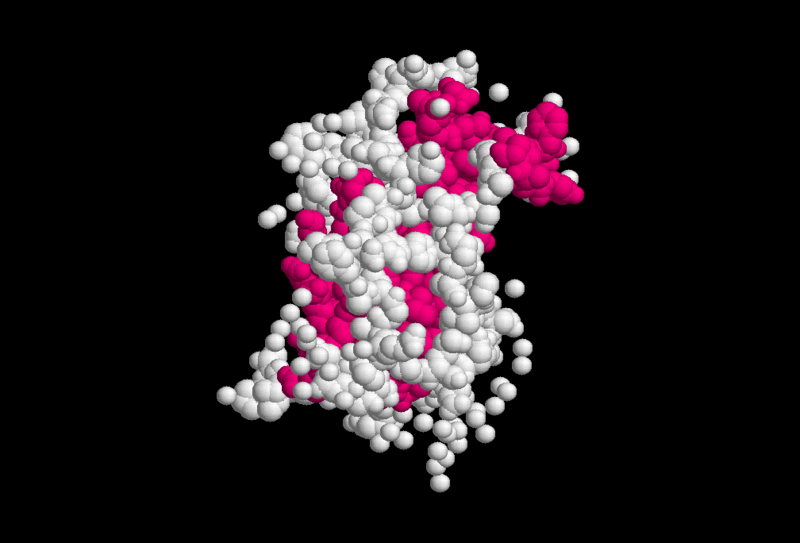Laron syndrome (patient information)
For the WikiDoc page for this topic, click here
| Laron syndrome | |
 | |
|---|---|
| Growth hormone | |
| ICD-10 | E34.3 |
| ICD-9 | 259.4 |
| OMIM | 262500 245590 |
| DiseasesDB | 7262 |
| MeSH | D046150 |
Editor-In-Chief: C. Michael Gibson, M.S., M.D. [1]; Jinhui Wu, MD
Overview
Laron syndrome is a rare genetic disease where the body has sufficient growth hormones but lacks receptors to utilize the hormone and hence dwarfism results. It was first reported by Zvi Laron and colleagues in Israel in 1966. Researches demonstrate that gene mutations in growth hormone receptor may involve in the disease. The principal feature of Laron syndrome is abnormally short stature. Blood hormone tests, bone age test and cranial MRI scan may help the diagnosis. The only effective treatment for patients with Laron syndrome is administration of insulinlike growth factor-1 (IGF-1). Many patients appear good with the treatment.
How do I know if I have Laron syndrome and what are the symptoms of Laron syndrome?
The principal feature of Laron syndrome is abnormally short stature
- Short hands and short feet
- Unusual facies: Prominent forehead, deep-set eyes, blue sclera, saddle nose and depressed nose bridge
- Proportionally larger head and abnormal skull growth
- High-pitched voice
- Reduced or normal intelligence
- Delayed bone age
- Delayed menstruation onset in girls
- Small penis in boys
- Delayed sexual development
- Childlike proportions in adults
- Obesity
Who is at risk for Laron syndrome?
Clinical investigations have demonstrated that the cause of Laron syndrome is associated with gene mutations in growth hormone receptor.
How to know you have Laron syndrome?
- Blood hormone tests, including the level of growth hormone (GH), insulinlike growth factor-1 (IGF-I), insulinlike growth factor binding protein-3 (IGFBP-3), basal GH, and GH binding protein (GHBP). Other tests invlove an IGF/IGFBP-3 generation test and provocative GH test. The doctor will manage the test and explain the results to you.
- Blood glucose and lipid test: It may show hypoglycemia and hypercholesterolemia in patients with Laron syndrome.
- A bone age test: For children suspect Laron syndrome, dual energy x-ray absorptiometry (DEXA) scans can be used to determine bone age.
- Cranial MRI: The goal of cranial MRI is to rule out growth hormone deficiency caused by other damages, such as tumor or injure in hypothalamus and pituitary glands.
When to seek urgent medical care?
Call your health care provider if your child seems delayed growth.
Treatment options
The only effective treatment currently available for patients with Laron syndrome is administration of insulinlike growth factor-1 (IGF-1). For infants patients, they may require more frequent feedings to avoid hypoglycemia. Regular blood sugar monitoring is necessary for some patients with Laron syndrome and for all patients with Laron syndrome taking IGF-I therapy.
Diseases with similar symptoms
- Intrauterine growth retardation
- Constitutional delay of growth
- Idiopathic short stature
- Nutritional growth retardation
- Psychosocial short stature
Where to find medical care for Laron syndrome?
Directions to Hospitals Treating Laron syndrome
Prevention of Laron syndrome
Genetic counseling may be an important aspect of education and prevention.
What to expect (Outook/Prognosis)?
Prognosis of Laron syndrome is not bad. Alert hypoglycemia is very important.